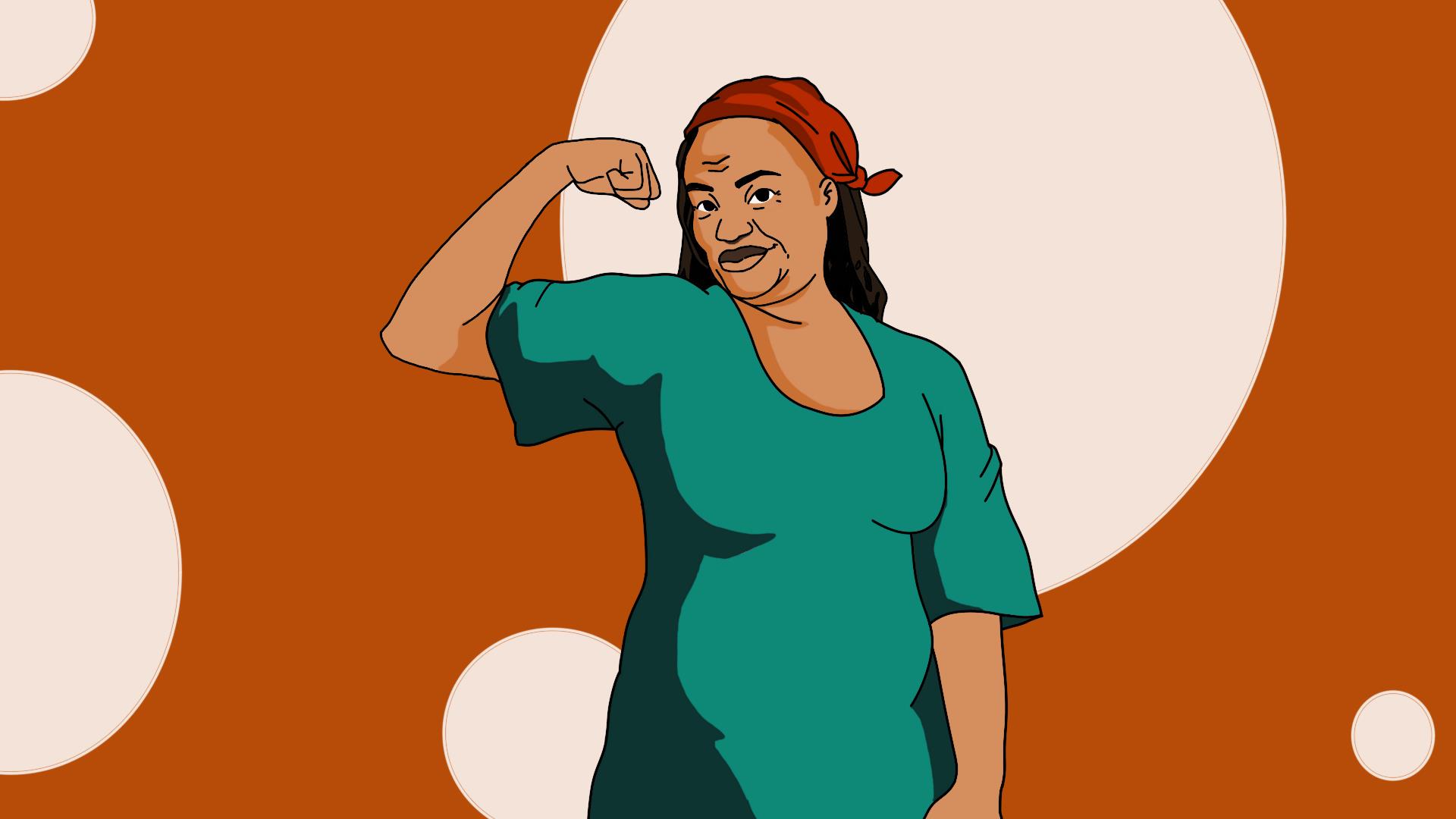🎧 Listen to: Menopause

Menopause
What is menopause?
Menopause, often called “the change of life,” is when a woman stops having her monthly periods permanently. It means she can no longer get pregnant. In Ghana and many parts of Africa, menopause usually happens around age 48, but some women may experience it in their early 40s or late 50s.
Every woman will go through menopause, yet many do not talk about it because of cultural taboos. Some women worry that menopause means the end of their youth, while others see it as a sign of wisdom and maturity. However, understanding menopause helps women prepare for the changes ahead and stay healthy.
Why does menopause happen?
Menopause is a natural stage of life that happens as a woman’s body produces fewer reproductive hormones. These hormones include:
- Estrogen and progesterone: Help control menstruation and pregnancy.
- Testosterone: Plays a role in energy and sexual desire.
- Follicle-stimulating hormone (FSH) and luteinizing hormone (LH): Help with egg production in the ovaries.
As these hormones decrease, the body goes through changes, leading to menopause.
How common is menopause in Africa?
Every woman will experience menopause if she lives long enough. In Africa, studies show that most women reach menopause between the ages of 45 and 50. However, some women experience early menopause due to lifestyle, medical conditions, or genetic factors.
Research in Nigeria found that 5% of women experience menopause before age 40, while studies in Kenya and South Africa show that menopause symptoms like hot flashes and joint pain are common but often ignored. Many African women go through menopause without medical support because of myths and a lack of information.
What is early menopause?
Menopause before age 40 is called premature menopause, and between ages 40 and 45, it is called early menopause. About 5% of women experience early menopause. The following factors increase the chances of early menopause:
- Not having children: Women who never get pregnant may reach menopause earlier.
- Smoking: Can cause menopause up to two years earlier.
- Family history: If your mother or sister had early menopause, you may too.
- Cancer treatments: Chemotherapy or radiation can damage the ovaries, leading to early menopause.
- Surgery: Removing the ovaries or uterus can trigger sudden menopause.
- Health conditions: Diseases like HIV, thyroid disease, and arthritis can cause early menopause.
Stages of menopause?
- Perimenopause: This is the transition period before menopause when the body starts changing. It can last a few months or several years, usually starting in the mid-40s.
- Menopause: A woman officially reaches menopause when she has not had a period for 12 months.
- Postmenopause: The years after menopause, when symptoms may continue but usually become milder.
Symptoms of menopause?
Menopause symptoms vary for each woman. Some women go through it smoothly, while others experience discomfort. Common symptoms include:
- Irregular periods: Periods may become lighter, heavier, or less frequent before stopping completely.
- Hot flashes: A sudden feeling of heat, especially on the face and upper body. 75% of women experience this.
- Night sweats: Excessive sweating while sleeping.
- Vaginal dryness: Can cause discomfort during sex.
- Weight gain: Many women gain weight around the belly.
- Mood changes: Some women feel more anxious, sad, or irritable.
- Memory problems: Forgetfulness and difficulty concentrating.
- Decreased sexual desire: Many women experience a lower sex drive.
- Hair changes: Hair may thin on the head and grow on the face.
- Joint pain: Stiff and painful joints are common.
- Frequent urination: Some women experience a weak bladder or urinary infections.
How menopause affects health?
Menopause increases the risk of certain health conditions, including:
- Osteoporosis (weak bones): Lower estrogen levels make bones weaker, increasing the risk of fractures.
- Heart disease: Estrogen helps protect the heart, so after menopause, heart problems may become more common.
- High blood pressure: Blood pressure may rise after menopause.
- Urinary incontinence: Weak bladder control can lead to accidental leaks.
How to manage menopause symptoms?
Menopause does not need to be a struggle. There are ways to make this stage of life easier:
- Eat healthy: Eat calcium-rich foods (milk, fish, greens) to keep bones strong. Reduce fatty and sugary foods to avoid weight gain.
- Exercise regularly: Walking, dancing, or yoga helps with weight control, mood, and bone strength.
- Drink enough water: Staying hydrated reduces hot flashes and dryness.
- Quit smoking and limit alcohol: Smoking worsens menopause symptoms, and too much alcohol can weaken bones.
- Manage stress: Practice relaxation techniques like deep breathing, prayer, or meditation.
- Wear light clothing: Light cotton clothes can help with hot flashes.
- Use lubricants: Water-based lubricants help with vaginal dryness.
Treatment options for menopause?
If menopause symptoms are severe, a doctor may recommend treatment options such as:
- Hormone therapy: Replaces lost estrogen to reduce hot flashes and bone loss. This is most effective for women under 60 or within 10 years of menopause.
- Medication for specific symptoms: There are medicines to treat vaginal dryness, hair loss, or mood changes.
Natural remedies: Some women find relief in herbal teas, soy products, or traditional African remedies. However, always check with a doctor before using herbal treatments.
